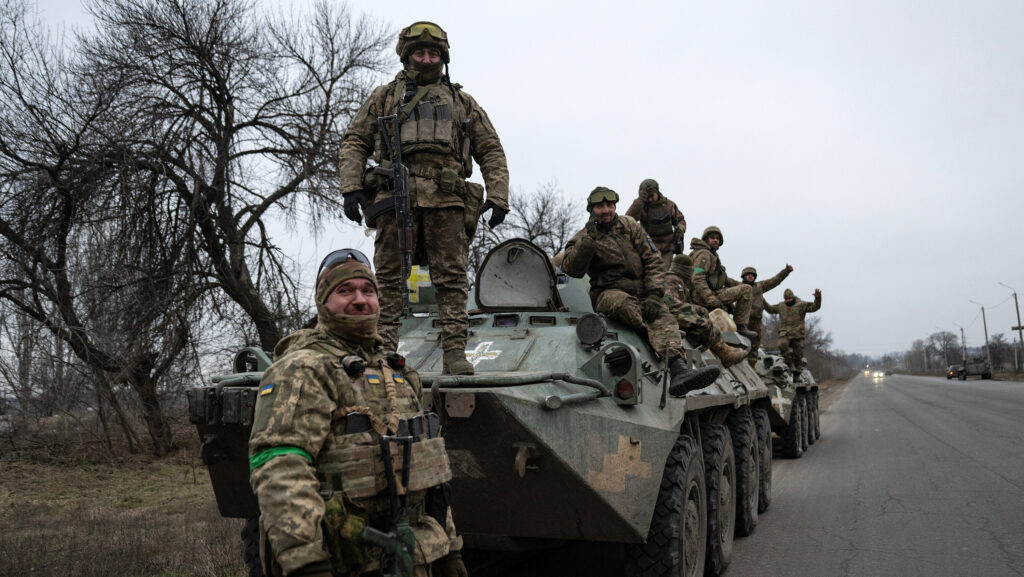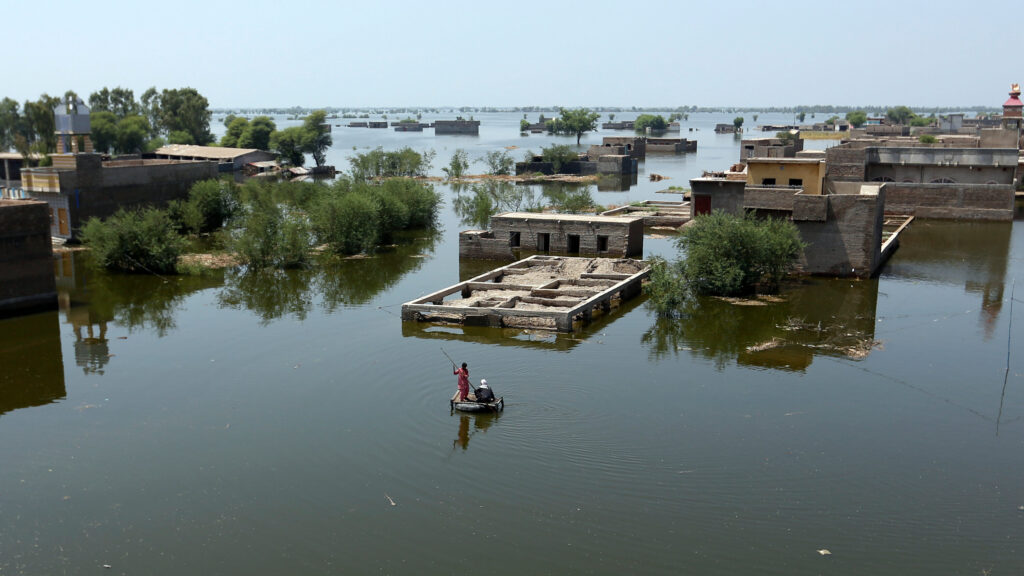Future historians will come to regard 2022 as a major turning point in world history, and the beginning of a new era. A war breaking out in Europe, major developments in women’s rights, and the the dawn of an environmental crisis are just some of the events that constitute this eventful year.
Ukraine
On Feb. 24, 2022, Russia invaded Ukraine in an escalation of the Russo-Ukrainian War that began in 2014. Ukrainian citizens scrambled for safety as bombs exploded in their neighborhoods, and sirens sounded for miles. This marked the beginning of a grim new chapter in a series of global calamities spanning the past three years.
NATO Secretary General, Jens Stoltenberg, said, “Peace on our continent has been shattered, we now have war in Europe on a scale and of a type, we thought belonged to history.”
In 2014, Russia declared war on Ukraine, claiming to be protecting two eastern provinces of Ukraine, Donetsk and Luhansk, which together make up Donbas. During this war, Russia successfully annexed Crimea, a peninsula in the south of the country.
In 2015, a peace deal was signed to call a cease-fire, and the Russo-Ukrainian war was thought to be over. However, Russia decided to invade once again, recognizing the separatist movement in the Donbas region and throwing the world into yet another crisis. However, the motives for Russia’s actions are still a subject of debate and interpretation (Russia’s war in Ukraine: How it came to this).

Putin has long claimed to want to restore Russia to its former glory, referencing Czarist Russia, a period marked by economic and cultural flourishing. Others say the war’s aim is to defend against NATO’s encroachment along the Russian border, and is a larger effort against democracy.
NATO, also known as the North Atlantic Treaty Organization, is a coalition of countries, including the US, that was formed after WWII to prevent a future WWIII. Members of this treaty agree to protect other NATO countries from attack. However, countries like Ukraine whose members do not meet the democratic requirements are unable to join this organization.
One of the reasons countries have been reluctant to send aid to Ukraine is because it is not a member of NATO. However, this has not completely prevented Ukraine from receiving massive amounts of aid from the west, both monetarily and militarily. As the war is progressing, Russian forces seem to be falling back, and Ukraine is gaining ground. Some predict a restored Ukraine, including Crimea, to return in 2023 (A brief summary of the Russia-Ukraine conflict).
Women’s rights
On June 24, 2022, the US Supreme Court determined that abortion was no longer a constitutional right by overturning Roe v. Wade of 1973. “Roe v. Wade” is the name of the landmark legal decision made on Jan. 22, 1973. In this case, the US Supreme Court legalized abortion across the board when they struck down a Texas statute banning the practice. The result of the case stated that abortion was implicit in the right to privacy supplied by the 14th Amendment.

Before Roe v. Wade, abortion was illegal throughout much of the US. In 1969, Norma McCorvey, a young woman from Texas, sought to terminate her pregnancy but, as a woman from an impoverished background, abortion was not an easy option. Since it was often restricted, abortions were inaccessible and dangerous for many. 200,000 to 1.2 million women, like McCorvey, seeking to terminate their pregnancies were forced to seek out “back-alley” abortions. Wealthy women, on the other hand, could fly out of the country to have the procedure or pay a doctor in secret.
After an unsuccessful illegal abortion, McCorvey was referred to two attorneys who were interested in using her case to challenge anti-abortion laws; in this court, Norma McCorvey became known as Jane Roe. In 1970, they tried Henry Wade, a Dallas district attorney, whose loss and failed appealment led to the legalization of abortion across the country based on the stage of pregnancy.
However, in 2022, the policy was overturned after the Dobbs v. Jackson case regarding the constitutionality of Mississippi law banning abortion after 15 weeks. Roe v. Wade and the constitutional right to abortion were overturned, which many say will prompt a continuation of the discussion of abortion as an autonomous right (Roe v. Wade: Decision, Summary & Background).
Environment
Throughout 2022, extreme weather events associated with climate change continued to devastate countries across the globe. The combination of a warming planet and worldwide population growth has led to a greater number of people living in hazardous areas, consequently causing an increase in the cost of destructive natural disasters.
The most costly weather event of 2022 was Hurricane Ian, a powerful category-four hurricane that impacted Cuba, Florida, and the Carolinas. It was the deadliest storm to strike Florida since the 1935 Labor Day hurricane and brought more than 100 billion dollars in damage from strong winds and floods (Finch).
The second most costly natural disaster this year was the European summertime drought. Triggered by a series of historic heat waves and below-average rainfall, this drought damaged the energy sector by adversely affecting hydroelectric and nuclear power plants as rivers dried up (Bhargava & Granados). The dry spell also heavily impacted crop yields and river transportation, causing total damages to amount to more than 20 billion dollars.

Similarly, southern China has also experienced extreme heat and droughts over the past year. During a prolonged heat wave this summer that lasted for more than two months, temperatures in cities across the Yangtze river valley exceeded 105 degrees Fahrenheit for over 70 consecutive days (Freedman). Consequently, sections of the Yangtze river reached their lowest level ever recorded, leading to reduced agricultural output and factory shutdowns caused by the energy deficit (Wong & Huang).
The deadliest natural disaster in 2022 was the Pakistan floods during the summer monsoon season, as historic amounts of rain fell across the country. Southern parts were hit the hardest, receiving up to five times more rain than usual monsoon seasons. Floodwaters covered a third of the country, destroying over 1 million houses and killing more than 1,500 people (Tunio).
As Pakistan struggled to recover from these floods, calls for compensation from countries with high greenhouse gas emissions grew in the months leading up to the annual global climate conference COP27. During these talks, governments across the world made the significant decision to create a loss and damage fund to compensate countries that are most vulnerable to climate-fuelled disasters. However, no decision was reached about who should pay the fund and which countries should benefit from it (COP27).
Additionally, countries failed to agree on targets to phase out fossil fuels, and overall very little progress was made in cutting emissions during the final agreements. As climate change is predicted to continue to worsen over the next decade, the abundance of both extreme wet and dry conditions seen during 2022 will only continue to intensify in the years to come.

